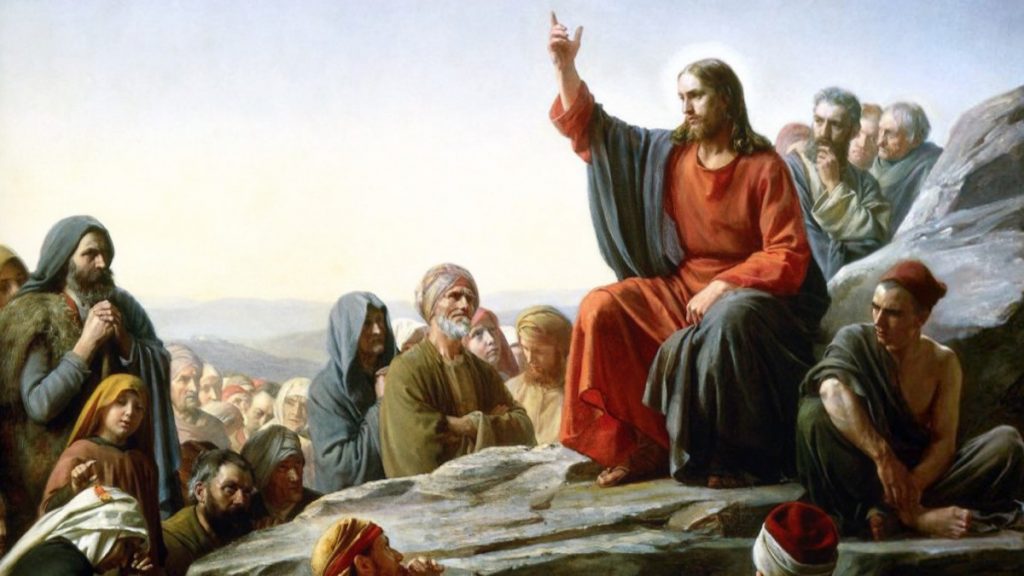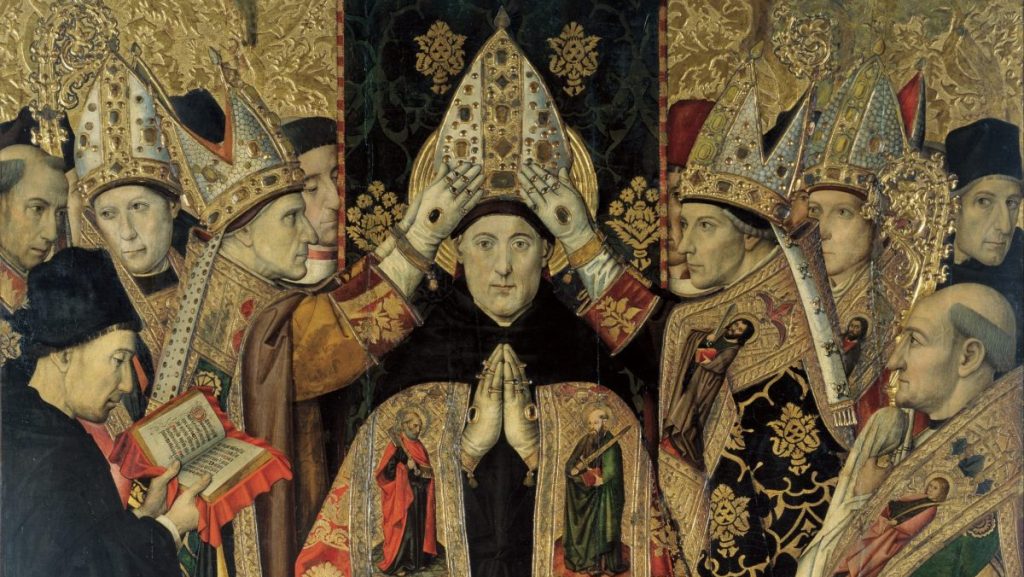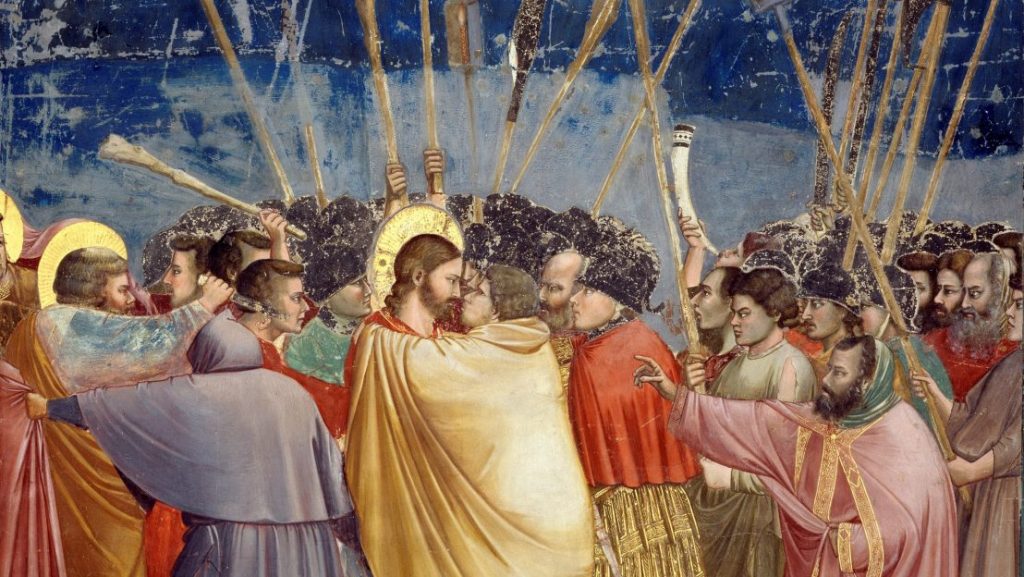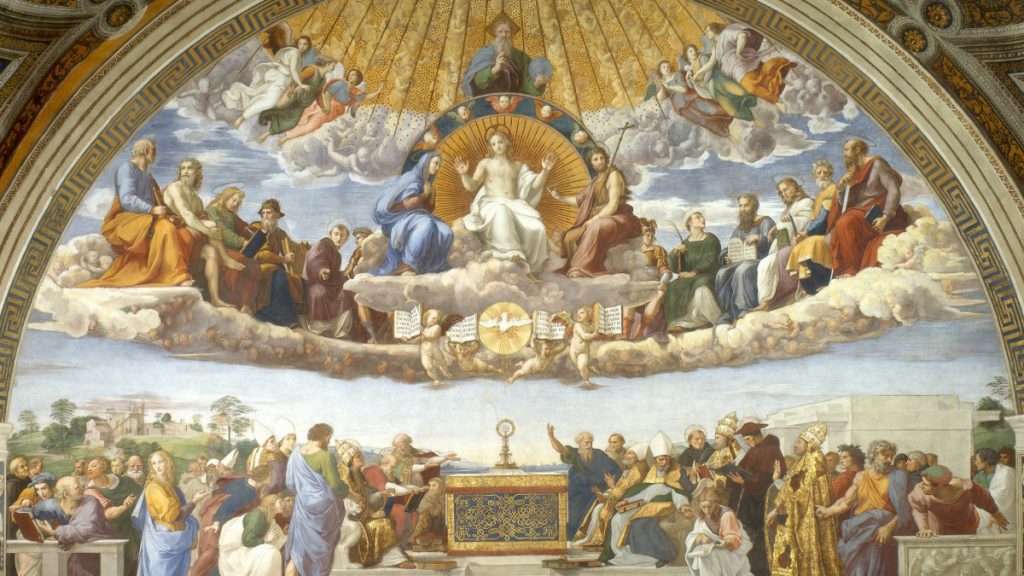(Updated July 16, 2025)
This Author Quote Archive collects pertinent quotes from the Ecclesiastical Writer, Ambrosiaster/Pseudo-Ambrose, who was often believed to have been St. Ambrose of Milan.
Next to each quote are the Topic Quote Archives in which they are included.
This Quote Archive is being continuously updated as research continues. Quotes marked with “***” have not yet been organized into their respective Topic Quote Archives.
Biblical Commentaries
Ambrosiaster, Commentary on 1 Corinthians (c. 366-384)
- End Times | Commentary on 15:53
(Commentary on 15:53)1
In the time of the Antichrist, the rest of the Gentiles [non-Christians] will be either apostate, or guilty, or in hiding, or enduring punishment already, and the Lord Jesus “will slay them,” along with their ruler, the Antichrist, “with the breath of his mouth” (2 Thess. 2:8). That is to say, at his command they will be burnt up by the angels of his power.
Ambrosiaster, Commentary on 2 Thessalonians 2:1-12 (c. 366-384)
- End Times | Commentary on 2:1-4, 2:5-6, 2:7, 2:8-9, 2:10, 2:11-12
(Commentary on 2:1-4)2
Paul enjoins the Thessalonians not to be lightly or easily persuaded that the return of the Lord is imminent and gives the command that even if someone like a prophet were to speak to them in the spirit they should not believe him, nor should they agree to any book or letter even if it is written in the name of the 114 | 115 apostles. Deceivers have a way of counterfeiting letters under the name of some well-known person in order to mislead, so that the authority of the name may recommend something which would never be accepted on its own. He says this so that they will not be upset by their own lack of caution and be led astray into the worship of the devil, who will act in such a way as to appear in the name of the Savior and try to trick the saints into worshiping him, in order to ensnare those who believe in Christ. But so that that most shameless Satan should not have the space or opportunity which he thinks he has to deceive others, Paul pointed out the time and the signs of Christ’s return. The Lord would not come back until the Roman Empire fell and the Antichrist appeared, who would kill the saints and give the Romans back their freedom, but under his name. Knowing that the Lord would come to suppress him, Satan would usurp his name, both in order to make it appear that his rule is genuine and in order to take with him those who would perish along with him. He would even sit in Christ’s seat in the house of God and declare that he, and not the Son of God, is God himself.
This is why the Lord says to the Jews in the Gospel: “I have come in the name of my Father and you have not received me; if someone else comes in his own name, you will receive him” (John 5:43). Thus it appears that this person whom they are expecting to come will be either of the circumcision or at least circumcised himself, so that the Jews will have the confidence to believe in him. Therefore when writing to the Thessalonians, Paul teaches them to be cautious about this matter.
(Commentary on 2:5-6)3
Paul says that it only remains for the one who is to come before the [return of the] Lord to be revealed, because he is already expected and the Lord is coming. He already said this in a guarded way when he wrote: “Unless the rebellion comes first” (2 Thess. 2:3), which I mentioned must be understood as the destruction of the Roman Empire. When it collapses and the Antichrist comes, then we will believe that the return of the Lord is near.
(Commentary on 2:7)4
The mystery of iniquity began with Nero, who in his zeal for idolatry killed the apostles at the instigation of his father the devil, and went on to Diocletian, and most recently Julian. They started persecution with some cleverness and trickery but could not bring it to fruition because they were not permitted to do so. Satan uses these servants so that meanwhile in a crowd of gods he can feign a revelation of the one God and lead people astray as long as the Roman Empire survives. This is what Paul said: “until it is out of the way” (2 Thess. 2:7).
(Commentary on 2:8-9)5
Paul says that Antichrist will appear after the collapse of the Roman Empire, as has been stated. Most recently, the devil, knowing that his end is nigh (for the Roman Empire is crumbling and he will be cast down out of heaven and thrown to earth, as it says in the Revelation of the Apostle John [Apoc. 12:9]) will commandeer to himself certain signs of power as and when he can, doing this with the permission of the righteous God, and will offer himself for worship as if he were God. He will copy the Son of God who after He was born and made a man, demonstrated His divinity in signs and wonders. Satan will also appear as a man and present himself as God by the powers of the lie, as was said above.
This is the revelation of the mystery of iniquity. When Antichrist appears, he will be recognized as the god of those to whom the common people once worshiped as gods with his permission. He himself is the first or chief of them all, because by the powers of his signs he will do something which is believable. Paul called these the portents of the life, because Satan wants himself to be believed in by these signs, which is not the same thing as deceiving those whom he has led astray. All this is revealed to the saints in advance so they will know what to beware of.
(Commentary on 2:10)6
Paul says that the deception of the iniquity of his [Antichrist’s] miracles is of advantage to those who will perish. Because they have rejected the love of the truth by which they could have been saved through the preaching of the apostles, they have been handed over to the devil. They did not want to be saved and so they have been abandoned by God.
(Commentary on 2:11-12)7
The working of error is to put faith in what is false. Those who did not want to admit that the bright of the light is day think that darkness ought to be called daylight instead. That way they become guilty of even greater sin and are damned without contradiction as enemies of the truth and accomplices of iniquity.
Footnotes
- Ambrosiaster, Gerald L. Bray, Ancient Christian Texts: Commentary on Romans and 1-2 Corinthians, Ambrosiaster (Downers Grove, IL: IVP Academic, 2009), 201. ↩︎
- Ambrosiaster, Gerald L. Bray, trans., Ancient Christian Texts: Commentaries on Galatians-Philemon, Ambrosiaster (Downers Grove, IL: IVP Academic, 2009), 114-15. ↩︎
- Ambrosiaster, Gerald L. Bray, trans., Ancient Christian Texts: Commentaries on Galatians-Philemon, Ambrosiaster (Downers Grove, IL: IVP Academic, 2009), 115. ↩︎
- Ambrosiaster, Gerald L. Bray, trans., Ancient Christian Texts: Commentaries on Galatians-Philemon, Ambrosiaster (Downers Grove, IL: IVP Academic, 2009), 115. ↩︎
- Ambrosiaster, Gerald L. Bray, trans., Ancient Christian Texts: Commentaries on Galatians-Philemon, Ambrosiaster (Downers Grove, IL: IVP Academic, 2009), 116. ↩︎
- Ambrosiaster, Gerald L. Bray, trans., Ancient Christian Texts: Commentaries on Galatians-Philemon, Ambrosiaster (Downers Grove, IL: IVP Academic, 2009), 116. ↩︎
- Ambrosiaster, Gerald L. Bray, trans., Ancient Christian Texts: Commentaries on Galatians-Philemon, Ambrosiaster (Downers Grove, IL: IVP Academic, 2009), 116. ↩︎








